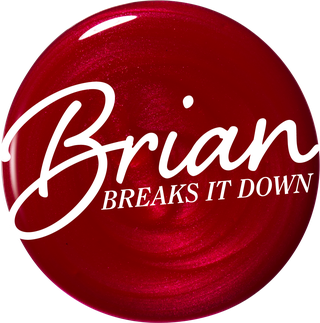How Do You Know if Your Allergic to Sun Screen on Lips
In all my years as a dazzler editor, I've been confounded by many, many things. Isn't an essence the same as a toner? Why does "natural looking" makeup still crave 15 different steps? How have we managed to observe penicillin nonetheless can't create a matte lipstick that doesn't feel like yous're wearing a plaster cast on your rima oris?
Sunscreen, on the other hand, has always seemed like the almost clear-cutting concept. UV rays tin can damage your skin and potentially cause yous to develop skin cancer. Wearing a product with sun protection cistron (SPF) protects against these ills. Case airtight. Lately, non quite.
Consumers are more than confused than always near what products are safe and effective and how to employ them properly. And a steady stream of misinformation may explain why just 43% of women report using an SPF of fifteen or higher regularly, co-ordinate to the Centers for Affliction Control and Prevention.
More than From

For dermatologists, there'south no defoliation on the subject. They want you to use sunscreen regularly and take other defensive measures like seeking shade throughout the twenty-four hour period and wearing sun protective clothing. "The key to aging well and preventing pare cancers is to make it the addiction of putting on a production with SPF every single day," says Abigail Waldman, M.D., clinical manager of the Mohs and Dermatologic Surgery Heart at Brigham and Women's Hospital in Boston. "Wake upwardly, brush your teeth, put on sunscreen."
Here, Waldman and other height doctors deflate the SPF myths they hear most often from their patients, and offering commonsense strategies for proper sunday protection.
Myth #i: "I tan, so I don't need to article of clothing sunscreen."
If yous're someone who loves to greet summertime with a golden glow, know this: When used properly, sunscreen prevents tanning—and that's a good thing. "Nothing about a tan is healthy—it's essentially your pare sending out an SOS," says Mona Gohara, M.D., associate clinical professor of dermatology at Yale University. "If a person is having a heart assail, the first sign might be chest pain. A tan is the aforementioned thing; it's telling y'all that your pare is beingness damaged."
A tan is essentially your peel's melanocytes reacting to UV exposure by churning out more pigment in an effort to protectively reflect away some of those damaging rays. "But a tan is just the equivalent of basically an SPF 2," Waldman says. "So the idea that getting a 'base tan' allows you to lay out in the lord's day for hours is a faux sense of security."
In fact, even the darkest skin tones only have a natural SPF of about 13, which is why the American Academy of Dermatology recommends that everyone, regardless of pare color, apply an SPF of 30 regularly. While less common than in Caucasians, Blackness and Hispanic women are diagnosed with all forms skin cancer. "I've personally seen peel cancers growing on the faces of those who have the darker blazon four or five peel, and it'due south unremarkably a daze to them," says Alison Avram, M.D., a dermatologist specializing in pare cancer at Massachusetts General Infirmary (MGH). Bottom line: Skin colour solitary ain't cutting information technology—you lot've got to slather on that SPF.
Myth #2: "The college the SPF number, the better the protection."
You lot're at the drugstore and y'all encounter a bottle of sunscreen with SPF thirty and another with SPF 100—you should get for the 100, right? Maybe not. "The idea that the SPF number is the most of import variable in the sunscreen equation is a huge misconception," says Orit Markowitz, M.D., Director of Pigmented Lesions and Skin Cancer at Mount Sinai Hospital in New York City.
While one study in the Journal of the American Academy of Dermatology did find that participants wearing an SPF of 100 experienced fewer sunburns than those wearing the aforementioned corporeality of a product with an SPF of 50, Markowitz insists that there are other of import factors to consider, such as the blazon of product and how much h2o resistance it has. "A patient wearing a thick physical blocker that just has an SPF of 30 will be ameliorate protected than a person who has sprayed on an SPF 100 aerosol," she says.
This content is imported from poll. Y'all may be able to find the same content in another format, or you may exist able to find more information, at their web site.
And don't think that SPF 100 protects you from 100 per centum of the sun'southward dissentious rays—that'southward non how it works. The number merely calculates how long a product keeps you from burning (SPF 15 protects you lot 15 times longer and so on up). And in social club to get the protection advertised on the canteen, you must apply it regularly (every 2 hours) and handsomely (a shot glass for the entire body). This concluding part is key since most people utilize less than half of the recommended amount, according to the Skin Cancer Foundation.
Myth #3: "I don't need to habiliment sunscreen indoors."
Especially relevant in these times of stay-calm orders and social distancing, many patients automatically presume that holing upwardly indoors is a free pass to skip the sunscreen. Not true. Research shows that up to 72% of UV rays tin can penetrate articulate drinking glass windows, so go far the habit of applying your SPF of choice every morn, whether yous'll exist within or out.
And the aforementioned goes for cloudy days. "Deject cover doesn't fifty-fifty block the bulk of the sunday'south rays," says Mathew Avram, Thousand.D., Managing director of the Dermatology Laser and Cosmetic Center at MGH. "You're nonetheless getting meaning exposure." Do you demand to be reapplying as fervently equally you lot would exist if you were, say, at the beach swimming? Probably not, merely that doesn't mean some vigilance isn't required. "I'd exist shocked if the sunscreen you applied at eight o'clock in the morning time is still active at noon, whether y'all're outdoors sweating or not," adds Alison Avram. So exist sure to break out that canteen at least twice a solar day, every solar day.
Myth #4: "I'yard allergic to sunscreen."
You put on SPF. You intermission out. Your skin must exist sensitive to sunscreen. It seems logical, but adverse reactions to active sunscreen ingredients are extremely rare—and usually oxybenzone is the culprit. Far more common, says Waldman, are allergies to other ingredients that brand upward the formula, including fragrance, preservatives, and formaldehyde releasers—and those are found in many different skincare products, not merely sunscreen.
The good news is that there'due south a production out there for anybody, so if your peel reacts poorly to one, you'll likely discover another that works beautifully—even if it takes a little trial and error. To help, Waldman recommends the following, all of which eschew the common allergens she details above: EltaMD UV Elements Tinted Broad Spectrum SPF 44, Tizo 3 Facial Mineral Sunscreen SPF 40, or CoTZ Face Prime & Protect SPF forty Tinted Mineral Sunscreen.
Myth #5: "I don't need sunscreen if I'thou wearing clothes."
When it comes to adequate sun protection, all of the experts I spoke with for this story recommend a multi-pronged approach. No single protective measure, including clothing, can requite you 100 pct security, especially if y'all plan on spending a total 8 hours outdoors. So wearing sunscreen underneath fabrics with UPF (ultraviolet protection factor) and seeking shade during peak sunday hours is the smartest strategy. "The more yous layer, the less chance the sun has of getting at you," says Markowitz.
Myth #6: "Chemical sunscreens are bad for you."
For years, sunscreen detractors have used small preliminary studies, many of which were performed on animals in atmospheric condition that would be near incommunicable to replicate in people, to establish a link betwixt certain chemical UV filters and myriad health concerns, from hormone disruption to nativity complications to cancer. Things came to a head last year when the Food & Drug Administration issued new sunscreen recommendations that advise 12 usually used chemic UV filters practice not see the criteria to be considered more often than not recognized as safe and constructive (GRASE).
What'southward important to annotation is that the FDA isn't saying that these ingredients are unsafe. The bureau is but requiring articles to provide more than information on their safety. And while people—yours truly included—applaud the agency's efforts to safeguard consumers confronting potential danger, the American Academy of Dermatology still recommends that people use a broad spectrum sunscreen with an SPF of 30 regularly and "has not found a toxic association with the sunscreen ingredients that are currently being used," says Mathew Avram.
Further complicating things is a recent study that found that many of the sunscreen ingredients the FDA is evaluating for safe are absorbed into the bloodstream when used as directed. Information technology'due south not an altogether surprising finding, and simply because these ingredients are absorbed doesn't mean they are harmful. "Thus far, there hasn't been data that has created concern scientifically among dermatologists," Gohara adds. If you desire to exercise an overabundance of caution, off-white plenty. The solution is simple: Choose a mineral-based sunscreen.
Myth #seven: "Sunscreen doesn't protect against melanoma."
Because the deadliest form of skin cancer can pop upwardly on areas where the sun don't shine—melanomas have been identified on the soles of the anxiety, the palms of the easily, and even the genital area—some suggest that melanoma isn't caused by the sunday and, therefore, sunscreen would offer picayune protection confronting it.
While it is true that not all melanomas are sun-related, our dermatologists are unanimous in maxim that there is sufficient evidence of a articulate association with UV exposure. "It'due south a very black-and-white issue to me," says Gohara. "Dominicus exposure is to melanoma what cigarette smoking is to lung cancer."
This content is imported from poll. You lot may be able to find the same content in another format, or you may be able to find more information, at their spider web site.
The inquiry here is complicated: While some studies have institute an association between sunscreen utilize and increased rates of melanoma, Waldman, and the report authors themselves in some cases, point out that this inquiry often doesn't control for actual dominicus exposure. "If you're using sunscreen, for case, information technology's likely yous might actually be going out in the sun more and therefore putting yourself at a college risk," she says.
One of the best pieces of data we accept, Waldman tells me, is a study of more than than 600 Australian patients published in JAMA Dermatology, which found that regular sunscreen use is significantly associated with a reduced risk of melanoma. Only make sure to cull your product wisely. You must use i labeled "broad spectrum," pregnant it protects confronting both UVB rays (the sunburn-causing kind) and UVA rays (those that penetrate deeper, and are almost associated with skin cancer). And, to be clear, using sunscreen won't give you carte blanche to bake on the embankment all mean solar day. Effort to go inside as much as possible too.
For more than stories like this, sign up for our newsletter.
This content is imported from OpenWeb. Yous may be able to notice the aforementioned content in another format, or you may be able to find more information, at their web site.
Source: https://www.oprahdaily.com/beauty/skin-makeup/a32692800/sunscreen-tanning-myths/

0 Response to "How Do You Know if Your Allergic to Sun Screen on Lips"
Post a Comment